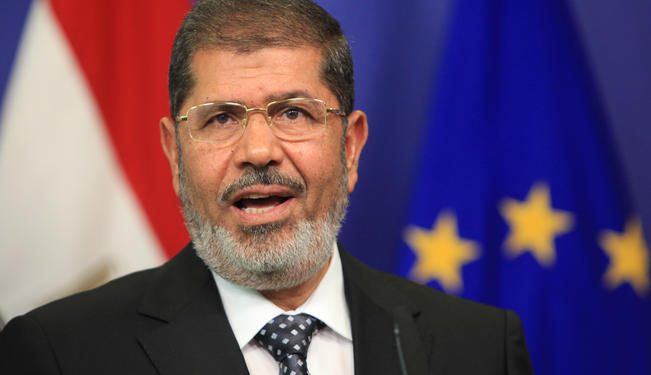It’s tempting to view government meltdowns abroad through the relatively sterile lens of American democracy. We cling to a fantasy that other nations should adopt our way of life and as long as they have freely elected leaders, all ills will be cured.
Naiveté like this led the neoncons of the Bush years into Iraq, and now it’s causing lots of handwringing over the fact that the first democratically elected president of Egypt was overthrown by the military, thereby destroying any hope for Egyptian democracy.
But there has always been more to this experiment than the election process. What happens afterwards is what facilitates the freedoms we associate with democracy. And Mohamed Morsi had punctured the democratic trial balloon long before last week’s coup.
| There has always been more to Egypt’s experiment than the election process. What happens afterwards is what facilitates the freedoms we associate with democracy. And Mohamed Morsi had punctured the democratic trial balloon long before last week’s coup. |
It was only a year ago that Morsi became Egypt’s first democratically elected president. It quickly became clear his central objective was to seize executive power and rule as a dictator, rather than lead a more inclusive government accountable to the people. In a telling display of arrogance last fall, Morsi suspended pieces of the constitution and tried to exclude himself from the checks and balances of judicial review. Naturally, this sparked protests, and the reaction of Morsi’s allies in the Muslim Brotherhood was to pay gangs of men to rape female protestors and physically beat male opponents. Is this the “democratic” system some are now mourning?
Morsi’s brief tenure was disastrous. Egypt’s economy is in shambles, there’s mounting evidence that loyalists to his predecessor, Hosni Mubarak, were engaged in sabotage that hindered basic services, and his presidency has been an exercise in profound incompetence. He repeatedly tried to silence and persecute his opponents, and worked relentlessly to fuse religious radicalism with the political system. Behind the scenes the Obama administration tried to convince Morsi to behave more democratically, but he refused to budge. Tensions between the military and Morsi finally boiled over when he spoke at a rally with radical Islamist figures who encouraged sectarian violence and called for a holy war in Syria. Close Morsi aides also aggressively pushed for military interventions in Syria and Ethiopia, which Egypt couldn’t have afforded.
Recent developments not only in Egypt, but in countries like Iran and Turkey as well, have proven that Islamist governments simply cannot function. And while it obviously would have been ideal to wait three more years to remove Morsi in the next election, his authoritarian maneuvers may well have entrenched him so deeply that no legitimate opposition could have shaken him from his dictatorial perch.
And the millions of protestors taking to the streets to demand Morsi’s removal wouldn’t have just faded away. The movement would have continued to escalate and violence was inevitable. The country was doomed to careen off a cliff if Morsi stayed. He had to go.
Unfortunately, the military has demonstrated once again that it’s a corrupt and dangerous force, and its actions have completely exacerbated an incendiary situation. The murder of dozens of unarmed Morsi supporters this week gives the Muslim Brotherhood the perfect excuse for boycotting the political process moving forward, and they’ve already called for an “uprising,” which is code for a bloody civil war.
Admittedly, this all sounds pretty horrible. It’s difficult to imagine that the massive problems facing Egypt stand a chance of being solved anytime soon. The military’s plan for new elections early next year was hastily crafted and probably can’t lead to a government that is viewed as legitimate. Especially since the military will likely suppress involvement from the Muslim Brotherhood, even if they do want to participate.
As Bruce Ackerman argued, Egypt’s best bet might be to scrap the presidency altogether and enact a European-style parliamentary system. Any president will be viewed as illegitimate or he’ll succumb to the seemingly irresistible lure of authoritarianism.
Regardless, the U.S. has to be intimately involved, using its military aid as leverage as much as possible, and working with other countries in the region that have more influence over what happens in Egypt. There is undeniable talent and innovation in Egypt that couldn’t have flourished under Morsi’s Islamist rule. But if, as Ackerman suggests, the different parties are forced to stitch together more diverse coalitions in order to govern in parliament, those qualities may stand a chance of emerging. Sadly, at the moment, it looks like the military and the Muslim Brotherhood are intent on fanning the flames of civil war.
Doug Daniels is a former staff reporter for Campaigns & Elections. He is the author of the forthcoming memoir Sifting Through the Wreckage. (Image via)



0 Comments